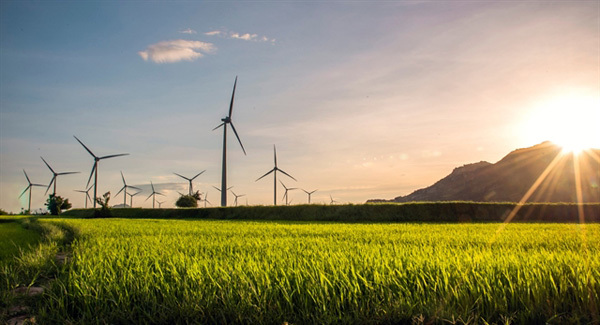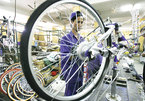 |
The minister was speaking at the Vietnam Business Forum 2020 (VBF) on Tuesday (Dec 22) in Hanoi.
“The forum is an opportunity to exchange, share and propose new initiatives and solutions, creating favourable conditions for businesses and investors in the new normal," Dung said.
Dung said 2020 was a year of great difficulties and challenges for the entire world due to the COVID-19 pandemic, adding that Vietnam still achieved positive GDP growth, which is expected to reach 2.5 to 3 per cent this year.
The minister mentioned the good control of the pandemic, stable macroeconomy with inflation controlled at a low level, concentrated investment in economic and social infrastructure system, improved administrative reform and business environment and better foreign affairs and international integration as good results in the last five years.
"To have such results, there are contributions from the business community, domestic and foreign investors. The trust and sharing of the business community have added more motivation for the Government of Vietnam to make decisions with flexible management and minds to effectively implement the targets," he said.
In the next 10 years, Dung said Vietnam aimed to accelerate digital transformation, develop a digital economy and build a digital society, focusing on developing high-quality human resources for science, technology and innovation while continuing to enhance local administrative reform and strengthen external relations and international integration.
Chairman of the Vietnam Chamber of Commerce and Industry (VCCI), Vu Tien Loc, said the business community expected the Government to take concrete and quick measures to resolve bottlenecks that were hindering businesses as well as use opportunities from trade deals to develop local human resources and the business infrastructure.
"The business community hopes that the Government can support them in strengthening the capacity and quality of the early trade promotion, establish technical centres for exporting product groups in different importing countries with specific requirements and technical standards," Loc said.
“The business community is expecting ministries and local governments to fully and seriously implement the Resolution 68 issued in May 2020 with a focus on reducing compliance costs for businesses," he added.
Loc also proposed running business support programmes with a focus on micro, small and medium-sized enterprises to help them overcome difficulties from the pandemic.
Attending the forum, Tetsu Funayama, representative of the Japan Business Association in Vietnam (JCCI), said Vietnam needed to develop more infrastructure to continue economic growth after COVID-19, suggesting using investment from public-private partnerships (PPPs) to reduce the burden on the national budget.
To attract Japanese enterprises, Funayama said: “It is necessary to balance the risk ratio between Government and businesses, ensure guarantees from the Government in case of emergency, and must operate following the rules of high transparency.”
“After the new PPP law comes into effect in 2021, we look forward to continuing discussions with relevant ministries, sectors and members in the National Assembly in order to ensure the aforementioned conditions, the completion of legal regulations and early application of flexible conditions for each project in the operation process," he added.
Appreciating the support in terms of taxes and loans for firms amid the pandemic, VBF’s co-chair Hong Sun, also vice-chairman of the Korea Chamber of Commerce in Vietnam (KoCham), said the business community in Viet Nam had high hopes in the solutions of the Government.
Virginia Foote, chairwoman of the American Chamber of Commerce (AmCham) also said the pandemic was an opportunity for local infrastructure investment, especially sustainable projects.
“Improving waste management, reducing carbon emission and air quality concerns by accelerating the use of clean energy, clean vehicles, clean agriculture and reducing the inefficiency and waste of energy will help build a stronger circular economy and spur job creation," Foote said.
“US firms are eager to invest in offshore gas development, LNG, solar, wind and biomass energy projects in Vietnam,” she added, noting firms are also interested in the recycling industry to help reduce plastic pollution in local rivers and oceans.
Established in 1997 and held annually, VBF has held meetings between the Government and its partners, as a not-for-profit, non-political channel for nurturing public-private dialogue to develop a favourable business environment. VNS

Major infrastructure projects move at slow pace
Major infrastructure projects, especially in the southern key economic zone, are moving at a snail’s pace due mainly to slow site clearance and capital disbursement, according to a report the Government recently sent to the National Assembly.

Government pushing forward with post-pandemic activities
Despite the aftermath of the global health crisis in Vietnam, an optimistic growth scenario is formulated for the next year, with proposals for heavy investment in infrastructure and practical support for the private sector